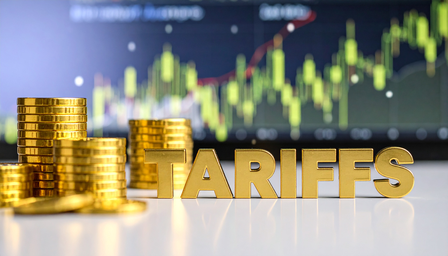
New Delhi – India’s strong corporate balance sheets, potential new trade deals, and likely government support for affected industries could help soften the blow from higher US tariffs, according to a Crisil report released Tuesday.
Crisil noted that any relief measures from the Indian government would be crucial in protecting sectors hit by the new tariffs. The report also pointed out that Indian companies are in a stronger financial position than in previous years, which should help them absorb some of the pressure.
The US has imposed a 25% tariff on several Indian exports, affecting industries such as diamond polishing, shrimp, home textiles, and carpets. From August 27, an additional 25% tariff will be applied as a penalty on goods linked to crude oil imports from Russia. This second tariff will also hurt exports of ready-made garments (RMG), chemicals, agrochemicals, capital goods, and solar panels—all sectors with significant trade exposure to the US.
The extent of the impact will depend on factors such as how much each sector relies on the US market, their ability to pass costs on to customers, and how these tariffs compare with those faced by competitors. Crisil also warned of possible knock-on effects, such as reduced US demand and shifts in global trade patterns. Any new trade agreement between India and the US would be worth watching.
Last fiscal year, the US accounted for 20% of India’s merchandise exports and 2% of GDP.
For sectors like RMG, agrochemicals, specialty chemicals, and capital goods, the 25% reciprocal tariff may be more manageable due to lower US exposure (5–20% of revenue) and smaller tariff disadvantages, which could allow partial cost pass-through. However, the extra 25% tariff from August 27 is expected to weigh heavily on all affected sectors.
India’s solar panel makers are unlikely to see a major hit to volumes or profits, as the US accounts for only 10–12% of their sales—a share expected to drop this year with rising domestic demand.
Some industries, including pharmaceuticals and smartphones, are currently exempt from the tariffs, while rates for steel, aluminum, and certain auto parts remain unchanged. Any future changes to these rates will be closely monitored, Crisil said.
With inputs from IANS